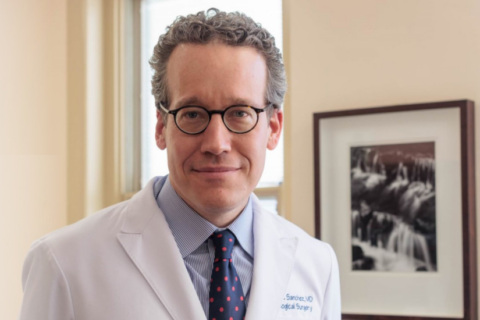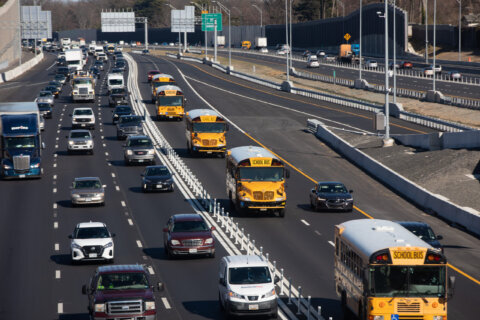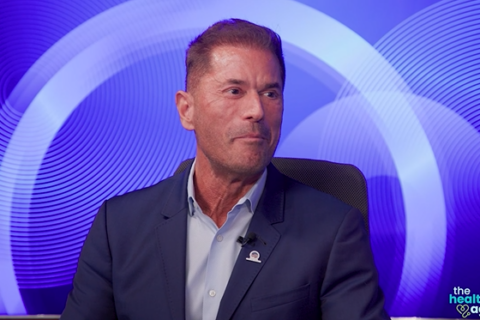As lawmakers in Washington consider widespread federal spending cuts, some health care advocates have raised concerns that the reductions could have a sweeping impact on medical services, research and patient care across the country.
Others argue that those claims are exaggerated and that the impact of the cuts will be far more limited.
Florida Rep. Neal Dunn, a Republican who spent more than two decades as a surgeon in Panama City, is among those pushing back against the criticism.
“The only health care cut actually is in the Medicaid program,” Dunn said. “The cuts have been very targeted, and I think there’s been a lot of misrepresentation about what we’re cutting.”
Dunn, who represents Florida’s 2nd Congressional District, said the primary goal is to address “waste, fraud and abuse” within government-run health programs.
For months, Republicans in Congress have said that they’re focused on trimming improper spending that places an unnecessary burden on taxpayers.
Dunn pointed to examples where people may be enrolled in Medicaid across multiple states or remain on the program after becoming ineligible.
“If you’re illegally in the country, you should not be on Medicaid,” Dunn said. “If you’re an American citizen but still ineligible, then you should not be on the program, and if you are on the program in more than one state, then you should only be in one.”
Targeted cuts will help keep Medicaid sustainable in the long term, according to Dunn.
“If you’re eligible for Medicaid, you’ll still have all the exact same benefits you ever had in Medicaid,” said Dunn. “If you’re not eligible, then we want you off.”
Where the cuts could hurt the most
Among the communities most vulnerable to potential federal funding cuts are rural areas, where health care infrastructure is already fragile.
The lack of access to providers and essential services can have a serious impact, especially for patients who are managing chronic illnesses or disabilities.
In those rural regions, including parts of Dunn’s own district in Florida, residents often face logistical challenges when seeking care, which means they sometimes need to travel long distances just to see a provider.
“Rural health care is hard,” Dunn said. “We have a lot of nice little communities along the coast in Florida that are underserved medically.”
Dunn said he believes that expanding telehealth services is one of the most effective ways to close those gaps.
“We want to strengthen that, give it a little more oversight and make it much more available,” Dunn explained.
He is also pushing for a policy shift that would allow physicians to once again own and operate hospitals, something that was sharply restricted under the Affordable Care Act due to concerns about conflicts of interest and rising costs to patients.
Critics of that restriction have argued that doctor-owned hospitals could drive innovation and increase competition, particularly in areas that are currently dominated by larger health systems.
“It doesn’t make sense that the only people in the country who cannot own a hospital are the ones who really understand health care,” Dunn said, adding that he thinks it would be like telling a lawyer that they can’t own a law firm.
Another area generating concern is how funding cuts could affect medical research.
Institutions like the National Institutes of Health and academic research centers are central to the development of new treatments and medical technologies.
While Dunn acknowledged those concerns, he said that lawmakers are not trying to weaken research infrastructure.
According to Dunn, they are seeking more accountability from NIH leadership.
“They need oversight right now,” said Dunn. “We’re going to bring NIH back, it’s going to get its money, but they’re going to have some new rules, and they’re going to have some new oversight.”
The impact of tariffs
Along with proposed federal funding cuts, trade policies, such as tariffs, carry major implications for the health care system.
For example, tariffs on imported medical supplies can increase costs and place additional pressure on an already fragile global supply chain.
Dunn said that regardless of the broader debate over tariffs, the U.S. should reduce its reliance on foreign countries for essential pharmaceuticals and medical equipment.
Strengthening domestic manufacturing is critical to preventing the kinds of shortages experienced during the COVID-19 pandemic, according to Dunn.
“We need to be able to produce these things ourselves,” Dunn said. “I’m convinced that you can profitably manufacture drugs in America, and we’re working very diligently on bringing pharmaceutical manufacturing back.”
“This is something we needed to do, independent of tariffs,” added Dunn.
Discover more perspectives from WTOP’s The Health Care Agenda 2025: Real Policies for Real People on our event page.







